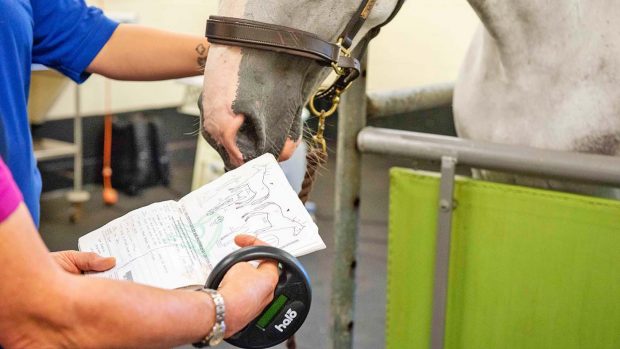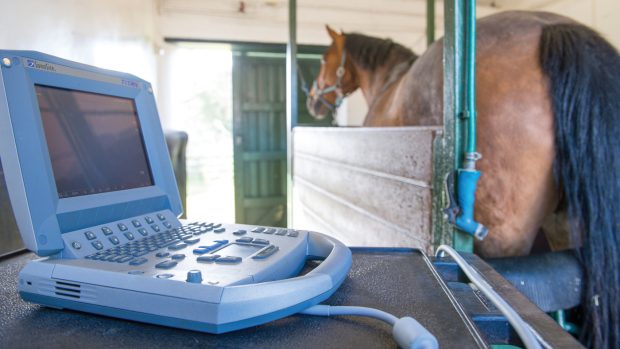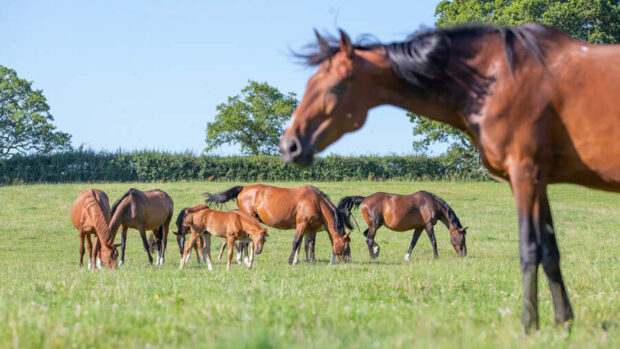British studbooks have the opportunity to “step up to the plate” as more breeders will register foals with UK organisations this year.
H&H reported last year that breeders would only be able to register British-bred horses with foreign studbooks that had been granted an extension of breeding territory from Defra under a new requirement following Brexit (news, 8 April 2021). Defra said studbooks would only be approved if there was not a UK equivalent. Of 106 that applied, seven were approved including the Holsteiner Verband, Cheval Comtois, and Menorca Horse.
Oldenburg Pferde and the Selle Français studbooks told H&H they were rejected. An Oldenburg spokesman added that breeders may still present Oldenburg and non-Oldenburg horses for licensing and mare performance tests, if they travel to Germany.
A Defra spokesman said Oldenburg did not formally appeal the rejection, and applications are still welcome from EU studbooks.
“The rationale not to allow the Oldenburger studbook to extend was to ensure the UK breeding programme was not compromised by a lack of genetic diversity. The population size of a breeding programme is key to its success,” he said.
“Not allowing a breeding programme to extend into the UK does not prohibit anyone from continuing to breed and freely trade that animal with EU breeders. The only change is those animals must be registered and passported by the equivalent UK studbook.”
World Breeding Federation for Sport Horses vice-president Eva-Maria Broomer, who is also a head evaluator for the UK Anglo European Studbook (AES) told H&H there are a number of possible solutions including foreign studbooks opening daughter studbooks in the UK. Defra could also apply to the EU Commission for Article 35 of the Animal Health Law, which would grant the UK equivalent measures to animal breeding in third countries – so extension of breeding territories could continue – but this application can take two years. Defra told H&H it is “still considering” whether an Article 35 application would benefit breeders.
The Oldenburg spokesman said the organisation had considered a daughter studbook, but does not have plans to do so at the moment, adding that a daughter studbook could be seen as inferior, which is not Oldenburg’s “aspiration”.
Dr Broomer said with more breeders using British studbooks, this is an opportunity for these studbooks to “step up to the plate”.
“Within AES UK we are working with KWPN – who can no longer register foals in the UK – and are able to offer the KWPN genetic analysis and screening, which is a positive thing to come out of this,” she said.
“The winners in the long term will be those who look for solutions. In AES we have looked at what foreign studbooks offer and are implementing everything we can, with the same standard of service. There are choices for breeders in terms of UK studbooks and it’s down to breeders to explore what’s on offer and what matches their requirements.”
Caroline Ironside of MFS Studfarm usually registers a number of foals with Oldenburg and told H&H she will now have to have all her mares graded with the British Hanoverian Horse Society.
“We have supported British studbooks before and I’m not taking anything away from them, but I like our stock assessed by the judges of the foreign studbooks and getting that seal of approval we’re breeding the same quality as in Germany – that feedback is invaluable,” she said.
The British Hanoverian Horse Society’s studbook manager Kate Eaton told H&H the organisation – a daughter society of the Hannoveraner Verband that also manages the British Rhineland Studbook – believes having more British-registered horses is positive.
“For us, this is a great thing because it means we’re getting more mares into the studbook. We use the same database as Oldenburg so we have access to the same pedigrees, DNA profiles and performance data – the only major difference between the passports is the logo on the front,” she said, adding that the studbook’s judges are trained in Germany by the Hannoveraner Verband, and regularly go there to refresh their training.
Ms Eaton added she believes 2022 is going to be an “exciting” year for the studbook.
“In addition to our regional shows, because of demand we are planning a UK-wide tour. Also when we do performance testing we will take horses from other studbooks, for example Oldenburg, so they can gain premium status in the UK – which is opening more doors for people.”
You might also be interested in:

Concerns as European studbooks refused UK permission since Brexit

EU semen and horse trade concerns eased — but export issues continue

Breeding and competition horses affected by new EU animal health law

Subscribe to Horse & Hound magazine today – and enjoy unlimited website access all year round
Horse & Hound magazine, out every Thursday, is packed with all the latest news and reports, as well as interviews, specials, nostalgia, vet and training advice. Find how you can enjoy the magazine delivered to your door every week, plus options to upgrade your subscription to access our online service that brings you breaking news and reports as well as other benefits.





